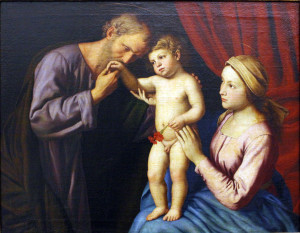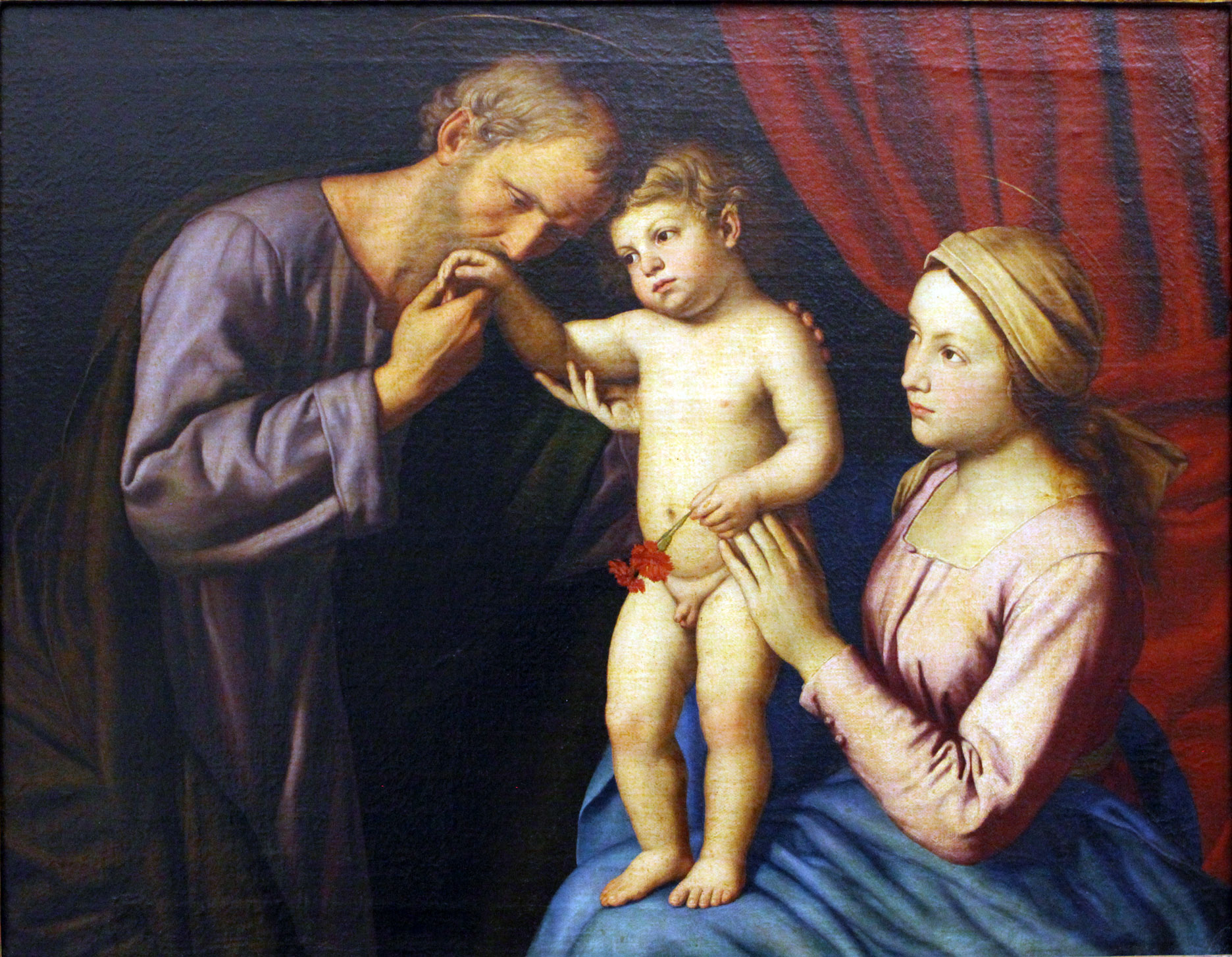
The 2015 Homiletic Directory suggests seven different doctrinal themes for this feast. Below are doctrinal points and practical applications based on the first theme, entitled “The Holy Family” (drawn from CCC 531-534).
Doctrine and practical application : The Holy Family
- Each of us ought to be able to identify with the Holy Family in that Jesus, his mother, and his foster-father lived ordinary work, civic, and religious lives according to the conditions and customs of their time. Yet within this ordinariness, “Jesus was ‘obedient’ to his parents and . . . ‘increased in wisdom and in stature, and in favor with God and man’.” (CCC 531)
- Doesn’t all this apply to us, too? We too have our own family, work, civic, and religious lives. We live them under conditions not usually of our choosing and surrounding by customs and a culture we have not created.
- Our great challenge is to be faithful to the Gospel. In doing so, there will be friction between (a) living the teachings of Christ and his Church with the help of the grace of the Sacraments and (b) living according to the ways our ordinary circumstances would tend to push us. But if we are faithful to the Gospel, this friction becomes a way we can increase in wisdom and stature, and in favor with God. We won’t, however, win the favor of some men who don’t like the direction we are going.
- Jesus obeyed his parents and perfectly fulfilled the fourth commandment. This obedience on earth “was the temporal image of his filial obedience to his Father in heaven.” It also “announced and anticipated the obedience of Holy Thursday” when Jesus obeyed not his own human will but the will of the Father. Finally, by his ordinary obedience, Jesus was “restoring what the disobedience of Adam had destroyed.” (CCC 532)
- Every time we obey legitimate authority, follow the moral law, do a job the right way, or in any other way conform our will to God’s will, we are being an image of Christ who did the will of the Father and undid the disobedience of Adam. So, every time we do the right thing, even down to tiny details, we don’t just do something good in itself, we are also moving in the right direction of being remade into the image of Christ. We are becoming like the New Adam, and unlike the Old Adam.
- And, because we are co-redeemers with Christ, the good that we do in this way also to some degree restores “what the disobedience of Adam had destroyed.”
- The home of the Holy Family is a “school where we begin to understand the life of Jesus” and the Gospel. What lessons can we learn in this school? St. Paul VI suggests three.
- First, silence: “that admirable and indispensable condition of mind.” I think this means the home is to be a place where there is privacy, peace, and enough quiet for thought and prayer.
- Second, family life: “its communion of love, its austere and simple beauty, and its sacred and inviolable character.” The family is by God’s design the privileged place in which parents and children learn to love.
- Third, work: “the severe and redeeming law of human work.” The home is not just to be a place to be entertained but the first school in which we carry out the original covenant God established with humanity: to be fruitful, and multiply, and fill the earth, and subdue it by having dominion over it (Gen 1:28). There is the work of maintaining the home (order, cleanliness, fixing things, making improvements), providing board (shopping, storing, cooking), taking care of children (clothing, cleaning, giving them chores), learning (study and on-going learning), and even now, more and more with the Internet, a place in which parents can do their professional work. (CCC 533)
- In the finding of Jesus in the temple, “the only event that breaks the silence of the Gospels about the hidden years of Jesus, . . . Jesus lets us catch a glimpse of the mystery of his total consecration to a mission that flows from his divine sonship.” He says to his parents, “Did you not know that I must be about my Father’s work?” They “did not understand these words, but they accepted them in faith.” St. Luke tells us in particular that Our Lady “‘kept all these things in her heart’ during the years Jesus remained hidden in the silence of an ordinary life.” (CCC 534)
- Likewise, each of the members of the family of the children of God should be about his or her Father God’s work. God’s will for us is the guiding star of our lives. This is true both in the every-moment task of doing the right thing, in the right way, for the right reason. It is also true in the all-encompassing life-work of discovering and living our vocation.
- It is also okay and part of the mystery of life not to understand what is happening, or why it is happening, or how it fits into God’s plans for us. But like Our Lady, we should ponder these things in our hearts. This is part of the silence of a true Christian home. There is a “space” for us to keep them and meditate on them until Our Lord shows us what they mean.

Leave a Reply